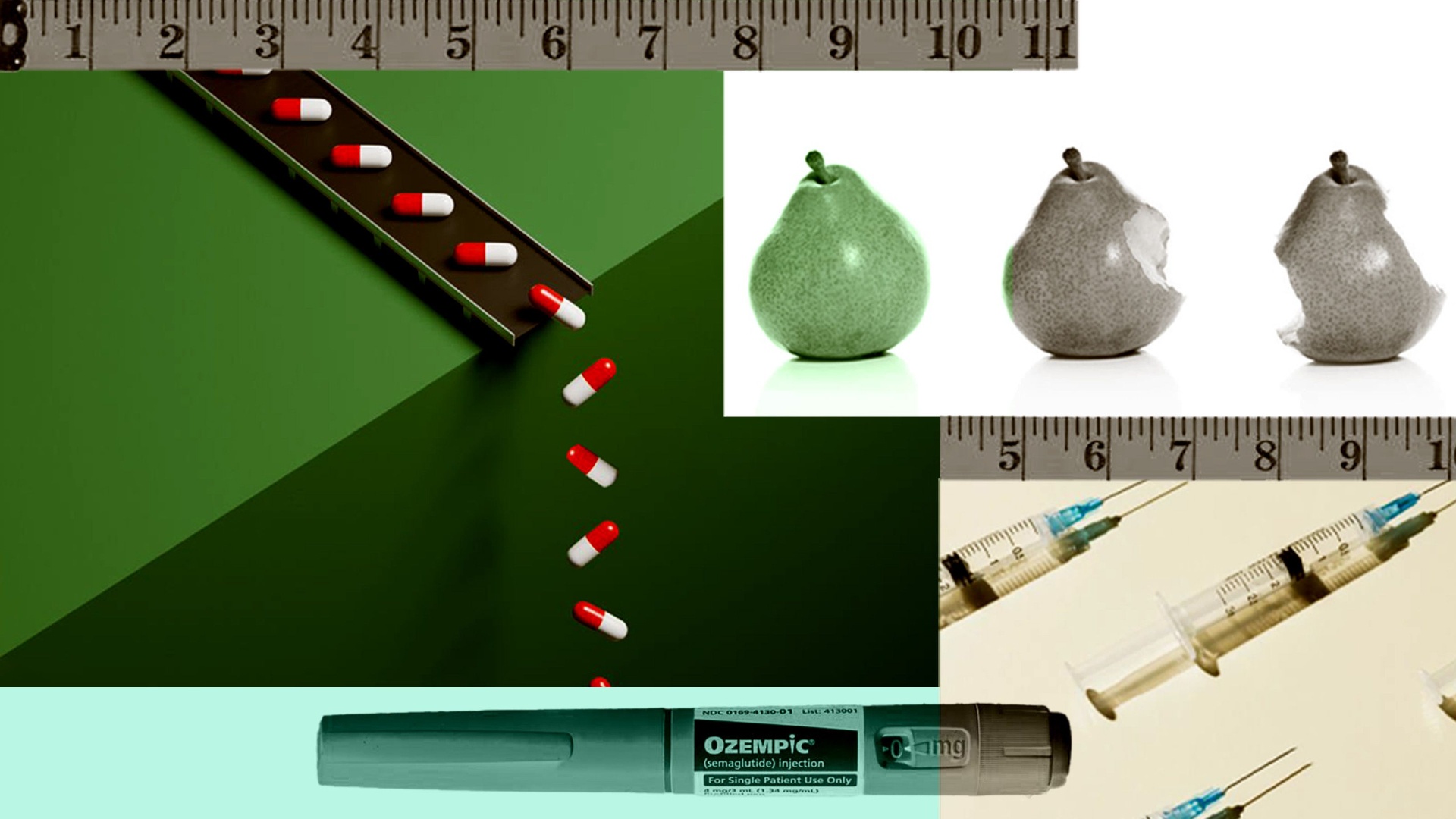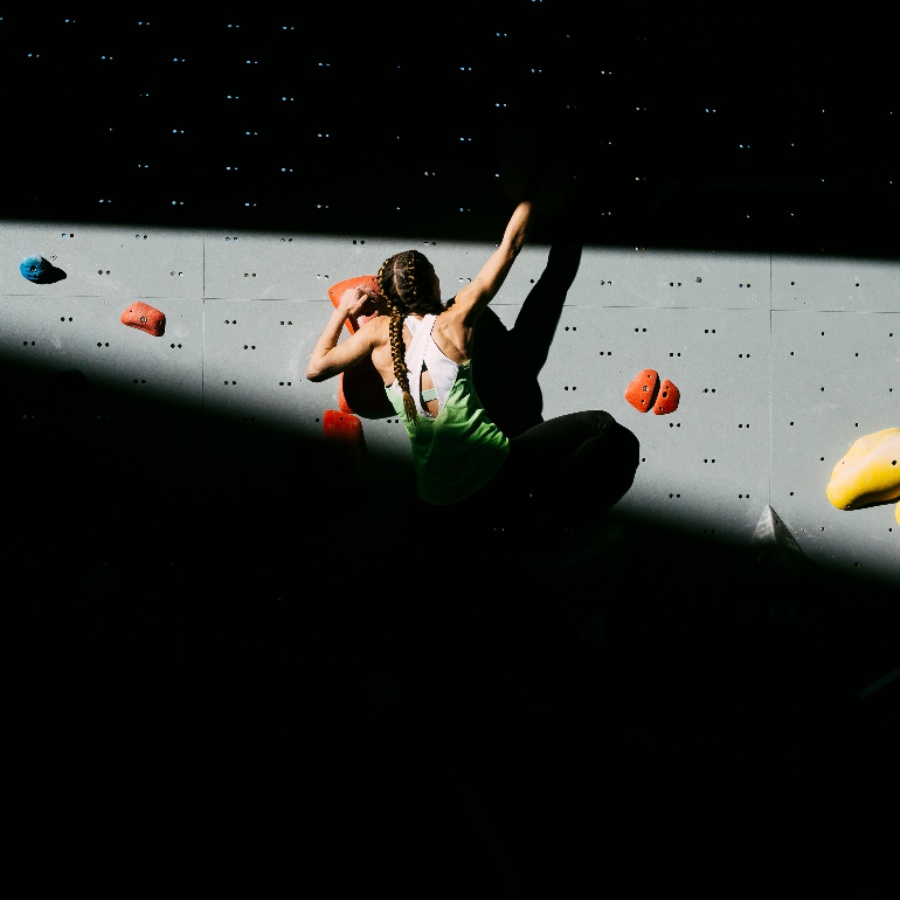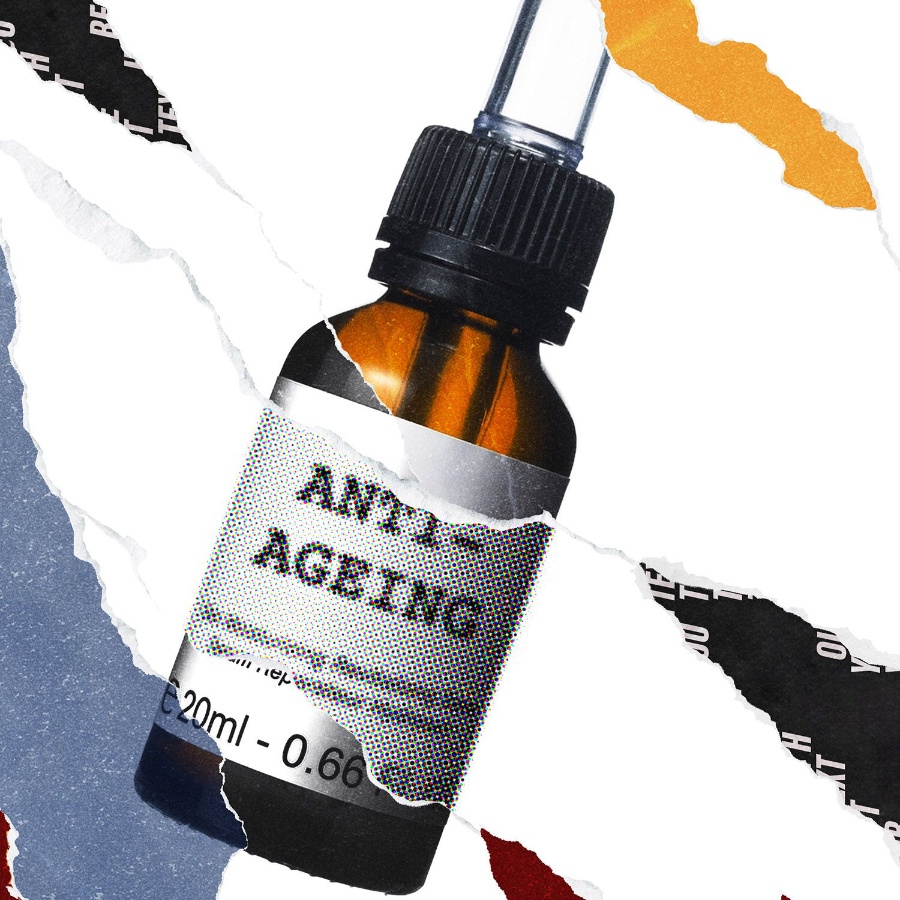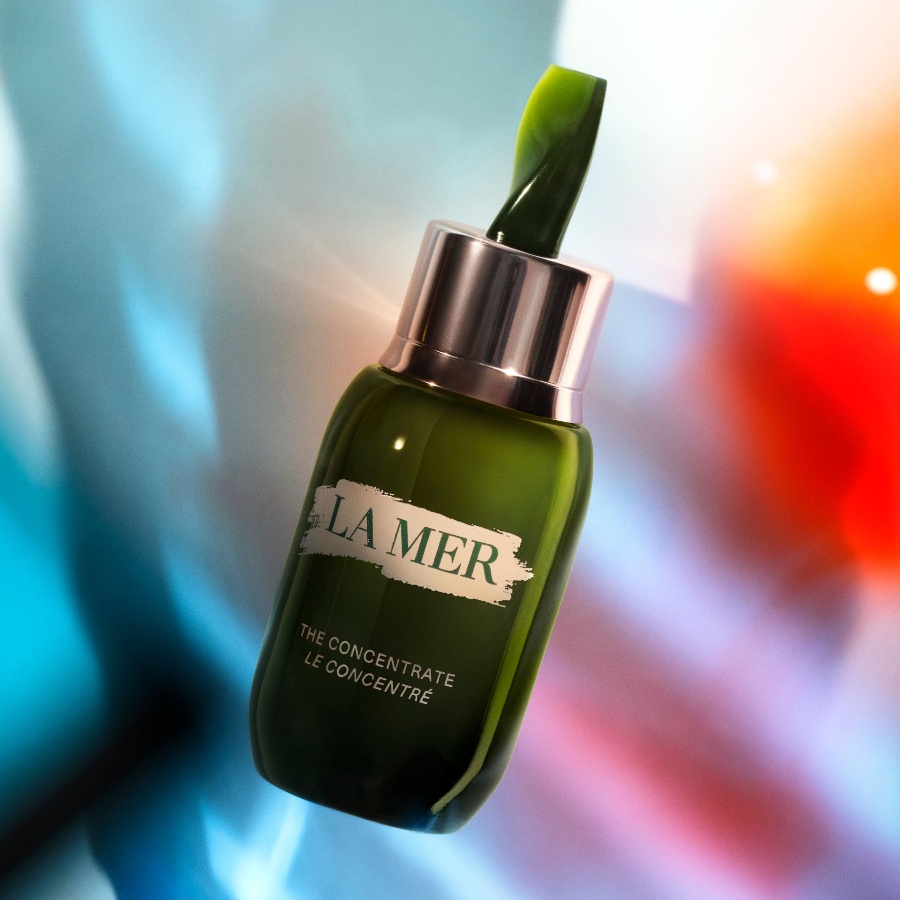In the past couple of years since Ozempic made headlines in tabloids and glossy magazines, I’ve watched, with mild amusement, the pearl-clutching over the “crazy” lengths us desperate-to-be-smaller people will go to get our “gluttonous, lazy, exercise-shirking” paws on the wonder drug. As if this is unusual or even extraordinary in the world of weight loss. It’s not. It’s actually so routine, it’s almost boring. Ask any fat person and we’ll hand you a laundry list of all the icky and abusive things we’ve done to our bodies.
And that’s the real tragedy.
Not the Ozempic or inhibitors or unnecessary bariatric surgeries, or all the painful laser and ultrasonic machines that fat people with false hope are plugged into at the slimming centres that dot our cities. But how normal and easy self-harm in the name of weight loss is, and that it’s almost always done in plain sight.
You don’t just wake up one day and decide to inject yourself or start popping hideously expensive pills. You ramp up to that. You have to truly believe that no price is too high to pay if, in the end, you can look like, well, not you. Once you cross that mental threshold, the inevitable step you take is a non-event; a thorough anticlimax. And none of this happens in a vacuum—more often than not, we cheer it along.
Which brings me to October 5, 2020, the day I popped my first unprescribed weight-loss pill. (No, it wasn’t Ozempic. I did also abuse a version of Ozempic, but we'll get to it, I promise.) To make things easier, let’s take the preceding 25+ years of crash diets, phases of starvation, and garden-variety eating disorders as par for the course.
A few days prior, I’d stepped out of the house for the first time to socialise after over six months of Covid confinement. 180 days without the minimising body shapers I lived in had created a strange kind of cognitive dissonance. It had been long enough to make squeezing myself back into the torture chambers uniquely painful, but not so long that I’d forgotten how much I depended on them to feel presentable.
The outing was a disaster. I spent the entirety of it flinching at the imaginary once-overs that were so much a part of my life.
The irony is I’d lost weight during the lockdown instead of gaining it, which seemed to be the norm for others. Between being a very basic cook, not going out, strictly controlled food deliveries, and the daily ritual of jhaadu-pochha, I accidentally had a pretty healthy routine going for those months. And yet, I was convinced I was fatter than before because I wasn’t contorting my body to look smaller than it was.
That should have been my first warning sign—my inability to believe anyone who said I looked great. I truly thought they were mocking me for my weight gain.
I came home and spent the night googling rapid ways to lose weight. Which is how I came across a lipase inhibitor drug that promised to help me shrink by decreasing the absorption and breakdown of fat. I could eat 1,500 calories, but only 1,000 would stick. How wonderful, no?
The side effects weren’t a surprise; they come with the territory when you take nasty drugs without supervision, but I was taken aback by how ridiculously easy it was to get hold of a prescription drug.
Except that the fat that wasn’t getting absorbed was now leaking from my body. Oily discharge is one of the most common side effects of the drug. Bladder pain, nausea, shortness of breath, irritable stomach are others. I wish I could say I didn’t know about this, but I did. And despite this, popping a 120mg variant of a prescription drug was a no-brainer.
The side effects weren’t a surprise; they come with the territory when you take nasty drugs without supervision, but I was taken aback by how ridiculously easy it was to get hold of a prescription drug. I had drummed up a prescription so laughably fake, it was almost like I wanted to be rejected by the ‘doctor’ who called to confirm the details from the fastest-delivering online pharmacy. And it wasn’t just that one app. All the ‘doctors’ at most pharmacy apps were more interested in cross-selling multivitamins than asking why I was buying medication off a prescription that was two years past the date of issue.
What I learned from my time of high-functioning drug abuse was that the human mind is exceptionally skilled at deception. Within a week, I had an iron-clad eating schedule that ensured I was always alone and near a bathroom to avoid accidental staining and discharge. I even remember being thankful for the collapse of my relationship—it was easier to pop pills with no one around to ask why I had so many medicine deliveries coming in.
Not that an audience would have stopped me.
Treatment protocol for my drug dictates that it should be taken supervised, and not for more than six months at a stretch because of the extreme stress it can create on the gastrointestinal tract. That’s a maximum of 540 pills you’re ‘allowed’ to take. I continued taking them for 26 months after the first six, which meant I popped 2,880 pills.
I remember being thankful for the collapse of my relationship—it was easier to pop pills with no one around to ask why I had so many medicine deliveries coming in.
You’d think that with all those pills, I’d have turned into a waif-like version of myself. I didn’t. Taking medication that didn’t allow my body to process fat made me overeat because of course, I had a fundamentally broken relationship with both food and my body. Some weeks, instead of losing weight or even just maintaining status quo, I put on weight.
The thing is, when you’re abusing a drug, it becomes your only normal. It becomes your lover and your partner, the only one who knows the ugly in your head. You can’t think of a reality when it’s possible to get by without its comforting embrace. You can’t stop even when it stops doing what it was supposed to, because your preoccupation now is the gnawing fear of what might happen if you were to go off it.
Which means that when I first heard about Ozempic, I was ripe for the picking. I latched on to it the second I heard it being credited with the sudden narrowness of all manner of celebrities.
The simplified science behind the drug is this: Ozempic and Wegovy are weekly injectable drugs with semaglutide as the active ingredient in both. Semaglutide tricks people into feeling very full after eating very little, to the extent that eating further makes them feel ill.
Ozempic is approved for the treatment of Type 2 diabetes by the US Food and Drug Administration (FDA). Its higher maximum-dosage twin, Wegovy, is used as an anti-obesity drug. Neither injection is officially available in India. What is available, though, is the pill version of semaglutide in three variations, as a treatment for Type 2 diabetes. The pill also comes with a laundry list of possible side effects—nausea, vomiting, diarrhoea, stomach pain, shortness of breath, rashes, dehydration, low blood sugar, worsening of vision, kidney failure, thyroid tumours…
But I’d spent almost three years harbouring an oily secret. Nausea was not going to deter me. I was already adept at creating fake prescriptions, so ordering the drug took barely any time. Within 24 hours of going down the Ozempic rabbit hole, I had its slightly poorer pill cousin in my hand.
At first, it was great. Years of body hatred had already made me exceptionally good at starving. My (very original) problem was that I swung wildly from starvation to emotional binge-eating. It was a loop from hell. So semaglutide felt like the brahmastra I’d been waiting for all my life. I couldn’t eat more than a couple of very tiny portions.
Imagine spending weeks and weeks feeling like you’re one morsel away from hurling. Imagine loving this feeling. The first few kilos came off rapidly. The compliments flowed. I made up stories about how I was doing it in a very healthy, very responsible manner. It was perfect, and I was hooked. They were going to have to pry my semaglutide pills away from my cold, atrophied hands when I died. In my addled brain, actively doing something that resulted in constant nausea and frequent skull-splitting headaches did not add up to self-harm.
Imagine spending weeks and weeks feeling like you’re one morsel away from hurling. Imagine loving this feeling.
Sometimes I wonder if things would have been okay if I’d just stopped there. But like any junkie, obviously, I couldn’t. A month or so in, I felt my body had acclimated to the lower dosage. I was sick with worry the first day I didn’t feel quite as sick as I had gotten used to feeling. I was enraged with my body for betraying me, for being resilient, for finding a way to survive the abuse I was putting it through.
The next day, I upped my dosage to more than double. This time, the nausea and headaches were accompanied by a brain fog and depression that wouldn’t let up. Somewhere, deep down, I knew I needed to stop the pills and get myself checked. I knew something was seriously wrong. I knew that I was nutrient deprived and my blood tests would sound all kinds of alarm bells. My eyesight had deteriorated rapidly, with a doubling of power in just three months, but I still didn’t stop.
Through the fog that seemed to thicken around my brain with each passing week, I felt panic knifing through me at the thought of losing my mind. If there was one thing I somewhat valued over my obsession to become thin, it was my mental acuity. I’d always had that. Even at my worst, I’d always been high-functioning. Now, I was being stripped of that, too.
At this point, it wasn’t that I wouldn’t stop. I couldn’t.
If there was one thing I somewhat valued over my obsession to become thin, it was my mental acuity. Now, I was being stripped of that, too.
I moved to a smaller city in the hope that cleaner air would make me well in the head again. It didn’t. What I urgently needed was help, but I didn’t know how to ask for it. On the outside, I made all the expected noises about following my artistic heart to a small town with clean air and community living. But on the inside, I fantasised about wanting all of it to end. While adverse psychiatric effects are not listed for the pill or Ozempic’s long list of possible post-use complications, damningly, depression and suicidal thoughts are a part of Wegovy’s list.
There were days when I wouldn’t speak. Weeks when I wouldn’t step out of the house. Countless occasions when I randomly broke down during conversations. Some small kernel of sanity told me I looked nothing like the amorphous blob of blubber I saw in the mirror, but the voice grew fainter every day. It got so bad that for a while, I had to go on antidepressants, also ill-gotten, to get through the day.
And amid all of this, I upped my dose again. By month seven, I was taking almost 5x the dosage, still with zero oversight. By the time my closest friend shook the truth out of me because I was seriously starting to scare her with my erratic behaviour and uncontrollable crying, I’d taken close to 275 pills over nine months.
I remember my panic attack when she made me flush down 30 tablets. I remember her guilt-ridden, weeping, when I finally let her in on my secret, and the horror on her face when she realised how much of my harmful, body-hating behaviours she’d witnessed but not registered, and sometimes even partaken in.
I know that no one made me do it. The decision to fake prescriptions and pop a cocktail of antidepressants and unapproved pills was all my own. And yet I can’t help but wonder—why was it so easy? Why were the apps sending me reminders to “stock up before stocks run out” more diligently than they were conducting legally mandated prescription checks for the Schedule G, H, and J drugs I had been abusing for almost four years? Why is it harder for me to access TikTok than it is to get my hands on potentially fatal drugs?
Why were the apps telling me to “stock up before stocks run out” more diligently than they were conducting legally mandated prescription checks?
I can’t tell you which one of the many ways in which my body suffered can be attributed to which pill. Were my fantasies about falling asleep and not waking up the next day a result of the lipase inhibitor, the semaglutide or the antidepressants, or were they just a latent part of my brain that had jolted awake at an inconvenient time? What was the real reason my bones had been hovering one centimetre away from a fracture for close to two years? Ironically, the only reason I hadn’t suffered a major bone-breaking event in all this time was that I was too weak to exercise or do anything too physically taxing.
Once upon a time I practised two martial arts and ran 5k every day. Now even my fingers felt frail.
I will never have those answers because I wouldn’t allow myself to be touched by a doctor for fear of being found out and made to stop. In the odd emergency, I faked reports of blood tests so they wouldn’t betray my shame.
It’s been four months since I went off all the pills. The friend who quite possibly saved my life ensures that I never miss an appointment with my therapist. I have regained most of the weight I lost, but I’m stronger. I have learned to have some respect for my body’s resilience, but I still haven’t mustered the courage to get a full, thorough physical. I’m working my way to that milestone.
If you saw me, you’d wonder why I did it. I am not obese. I don’t present as unconfident. Most people who meet me remember me for taking extraordinary, bordering-on-vain delight in clothing. I dress to thrill myself, and it usually attracts positive attention. I have never wanted for male company.
And yet, I can’t remember a time when I haven’t felt profoundly ugly and uncomfortable in my body. The best I could do with a partner’s very loving, very earnest “You’re gorgeous” was: “I believe that you think I am, but I don’t.” And that was the truth. No one could make me see myself as anything other than grotesque. And I wholeheartedly believed that the key to solving this self-image problem always lay 10-12 digits on the left of the weighing scale arrow.
I want to be able to say that nothing can make me go back into the hellhole I’ve had to claw myself out of—but I’m smart enough to know that’s not actually true. If you’d asked me, before I did what I did, if I could imagine going to such great lengths of deception and self-harm to lose a few kilos, I’d call you a nut job.
I was too smart to be that dumb. Until I wasn’t.
Views expressed in this article are the author’s own.




